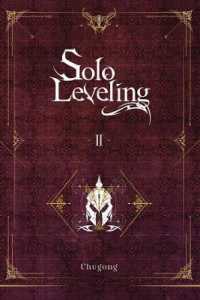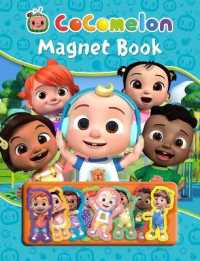Full Description
During the International Study Group meetings at the Literacy Research Association (LRA) Conference in December of 2019, we discovered that LRA scholars were engaged in innovative research, initiatives, and publications in very different contexts around the globe, especially in multilingual environments. The variety of studies offered promising cross-border insights with the potential to enhance international research and global collaboration efforts in education around the globe.
Literacy Pedagogies in Global Contexts provides a collection of research experiences around the globe that are rooted in indigenous, translingual and cross-cultural literacies. It includes chapters on indigenous literacies related to the diverse ways of knowing, communicating, and making meaning in rural Latin America and Africa that are rich, complex, and deeply contextual. Other chapters on translingual literacies describe how moving fluidly across languages to communicate, make meaning, and express identity can support learning in schools. Finally, there are chapters that highlight cross-cultural literacies that support a needed understanding to navigate, interpret, and communicate effectively across different cultural contexts.
One of the key strengths of this book lies in its diverse range of research methodologies, encompassing quantitative, qualitative, and mixed-method approaches. Another significant contribution is its inclusion of perspectives from a wide array of geographical regions, including Kenya in Africa; Peru, Bolivia, and Ecuador in Latin America; South Korea and China in Asia; as well as the southeastern United States.
Contents
Introduction; Luciana C. de Oliveira, Tara Willging, Jia Gui, and Destini Braxton
Chapter 1. Translanguaging as a Comprehensive Early Literacy Development Strategy for Children Living in Marginalized Areas in Kenya; Adelheid Bwire and Zaline Roy-Campbell
Chapter 2. Zoom Out to Zoom in Globally: Culturally Sustaining Pedagogy in Professional Development for Literacy Educators; Barbara Laster and Lea Ann Christenson
Chapter 3. Rethinking the Role of Indigenous Knowledge in Teacher Training Programs; Lucy A. Trapnell
Chapter 4. Learning Teaching as an Interpretive Process for Linguistic Justice; Leah Panther, Michelle Vaughan, and Vicki L Luther
Chapter 5. Sustaining Critical Indigenous Eco-Cultural Literacies in the Ecuadorian Amazon to Foster a Pluralistic and Intercultural Society; Tuija Veintie
Chapter 6. Curricular and Evaluation Contributions of a Bilingual Intercultural Project in the Amazon; Desirée Pallais-Downing and Adán Pari-Rodríguez
Chapter 7. A Bilingual Literacy Program for Rural Women in Peru; Manuel Valdivia and Angela Villamizar
Chapter 8. Cultural and Language Awareness in Reading Assessment: Developing Valid and Reliable Tools That Can Be Adapted to Latin American Cultural and Linguistic Diversity; Pelusa Orellana and Carolina Melo
Chapter 9. Through the Sliding Glass Doors: South Korean EFL Emergent Bilinguals' Journey Toward Racial Diversity in a Translingual Book Club; Eun Young Yeom
Chapter 10. Sixth-Grade Children's Response to Literature: Representing Lives of Low-Economic Status Groups in India; Shikha Tripathi and Shobha Sinha
Chapter 11. Culturally Sustaining Teaching Practices for Elementary Multilingual Learners: A Classroom Example; Luciana C. de Oliveira, Tara Willging, Jia Gui, and Destini Braxton








